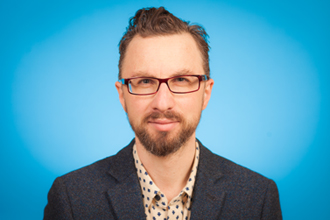Toronto’s unregulated opioid supply more contaminated than any other unregulated drug, report finds

By Jennifer Stranges

Dr. Dan Werb
Drug samples expected to be opioids were more contaminated than other expected drug types, according to a report released by the Centre on Drug Policy Evaluation (CDPE), housed within the Li Ka Shing Knowledge Institute at St. Michael’s Hospital of Unity Health Toronto.
The report, titled What’s in Toronto’s Drug Supply?, is an initiative of the Drug Checking Service, and is the first of its kind in Canada.
The report amasses results from 543 samples for a variety of unregulated drugs checked by the service from its launch date on October 10, 2019 until March 31, 2020.
Of the 543 samples checked, 46 per cent were expected to be fentanyl and only six per cent of expected fentanyl samples contained only fentanyl. The report also found unexpected noteworthy drugs were often found in Toronto’s drug supply. For example, benzodiazepines and benzodiazepine-related drugs were unexpectedly found in 36 per cent of expected fentanyl samples.
“These results provide a novel portrait of the dangers posed by Toronto’s unregulated drug supply and highlight a gap in our understanding of the drug supply,” said Dr. Dan Werb, director, CDPE and a scientist at St. Michael’s Hospital’s MAP Centre for Urban Health Solutions.
“In the midst of the COVID-19 pandemic, we are seeing a very disturbing spike in overdoses. The findings suggest the need to support people who are drug dependent with a safe supply of drugs. Cities like Vancouver, which has now instituted a city-wide program providing access to standard-dose opioids for people who are at risk of overdose, are a model of success in this area.”
People who use drugs in Toronto have long advocated for access to drug checking. In response, the Centre on Drug Policy Evaluation is coordinating a drug checking pilot operating out of three frontline harm reduction agencies in the downtown core: Parkdale Queen West Community Health Centre (Queen West site), South Riverdale Community Health Centre, and The Works at Toronto Public Health. Samples are transported to laboratories at St. Michael’s Hospital and the Centre for Addiction and Mental Health, where they are analyzed using sophisticated lab-based technologies.
“Many members of the public will be surprised to see in the report that fentanyl was the expected drug for 46 per cent of samples,” said Lorraine Barnaby, Urban Health Manager of Supervised Consumption Services at Parkdale Queen West Community Health Centre.
“This aligns with what we have seen over the past five years, as fentanyl has steadily become the leading cause of overdose deaths in Toronto. With the risk of overdose so high, it’s important that along with access to a safe drug supply program, we also have drug checking services to inform people of what is in the unregulated drug supply so that they are able to make more informed choices.”
Toronto’s Drug Checking Service reports on drug samples checked bi-weekly, which are contributed by people who use drugs to protect themselves from poisoning. The reports are available to the public sign up by emailing
drugchecking@cdpe.org. Be sure to follow the Centre on Drug Policy Evaluation on
Facebook and
Twitter for updates.
About St. Michael’s Hospital
St. Michael’s Hospital provides compassionate care to all who enter its doors. The hospital also provides outstanding medical education to future health care professionals in more than 27 academic disciplines. Critical care and trauma, heart disease, neurosurgery, diabetes, cancer care, care of the homeless and global health are among the Hospital’s recognized areas of expertise. Through the Keenan Research Centre and the Li Ka Shing International Healthcare Education Centre, which make up the Li Ka Shing Knowledge Institute, research and education at St. Michael’s Hospital are recognized and make an impact around the world. Founded in 1892, the hospital is fully affiliated with the University of Toronto.
About Unity Health Toronto
Unity Health Toronto, comprised of Providence Healthcare, St. Joseph’s Health Centre and St. Michael’s Hospital, works to advance the health of everyone in our urban communities and beyond. Our health network serves patients, residents and clients across the full spectrum of care, spanning primary care, secondary community care, tertiary and quaternary care services to post-acute through rehabilitation, palliative care and long-term care, while investing in world-class research and education. For more information, visit www.unityhealth.to.
